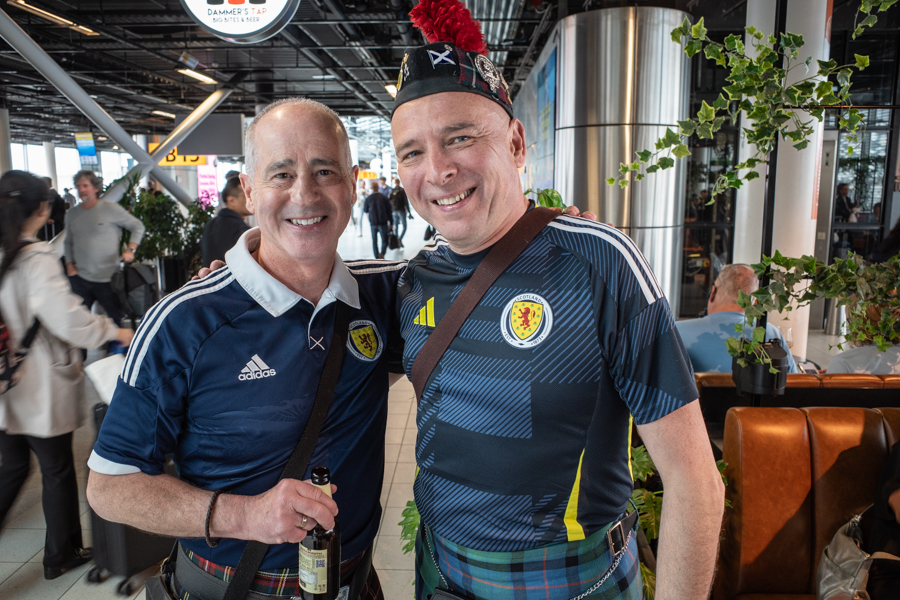I was back on the road in the second week of June.The Polish Patent Office invited me to give a talk at a conference on sustainable innovation in Warsaw, and of course I took advantage of the opportunity to visit my sister in Wrocław, about 4 hours from Warsaw by train.
24_1
But we started the week with a lunch at a restaurant located in a winery called Casa Sicilia, about 40 km from Alicante. The occasion was our friend Eliot’s birthday. The place is beautiful. This is the main room of the restaurant:

24_2
There is a shop selling the wine and olive oil produced by Casa Sicilia:
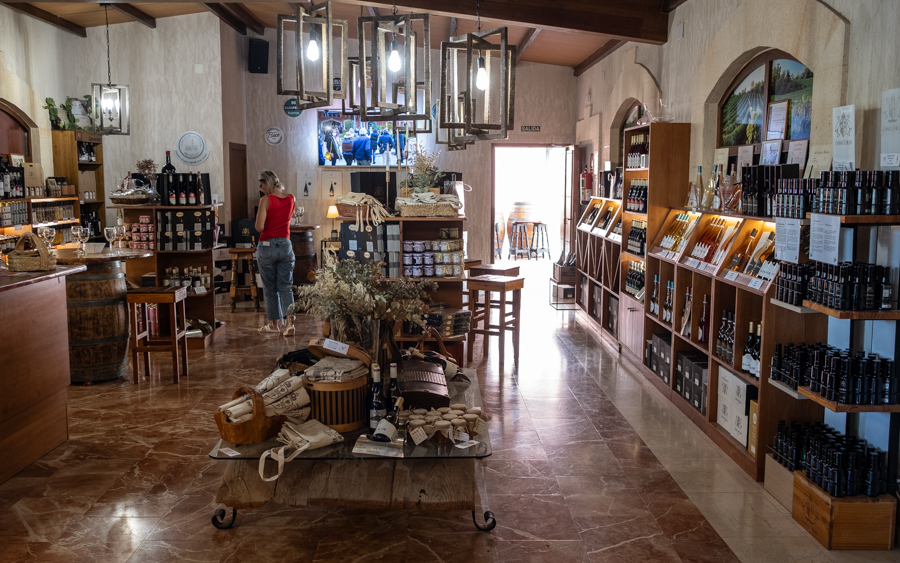
24_3
As you enter, you pass a memorial to the founder of the outfit, some 300 years ago:
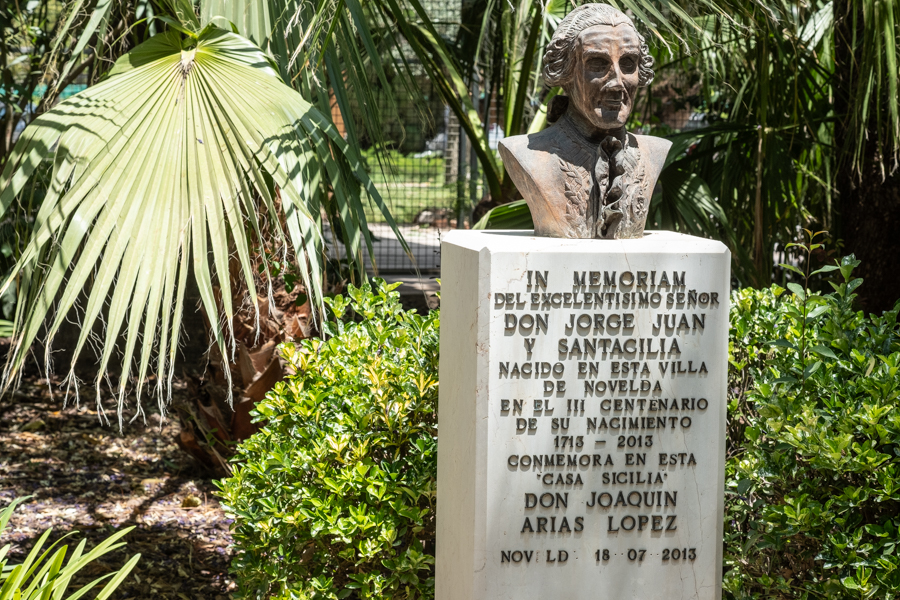
24_4
We ate on the terrace outside, enjoying the views of the property and the landscape:
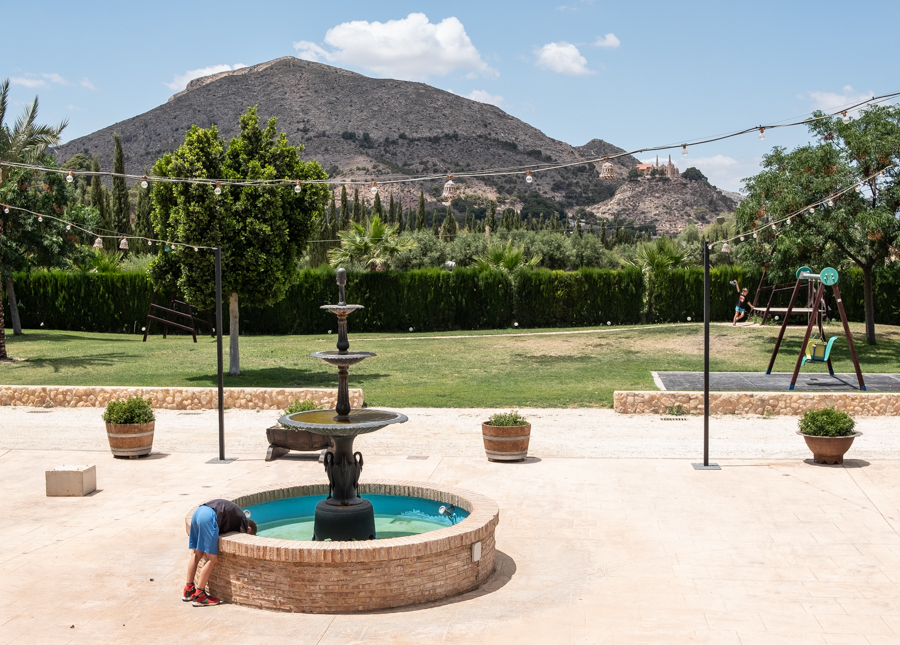
24_5
There are animals too:
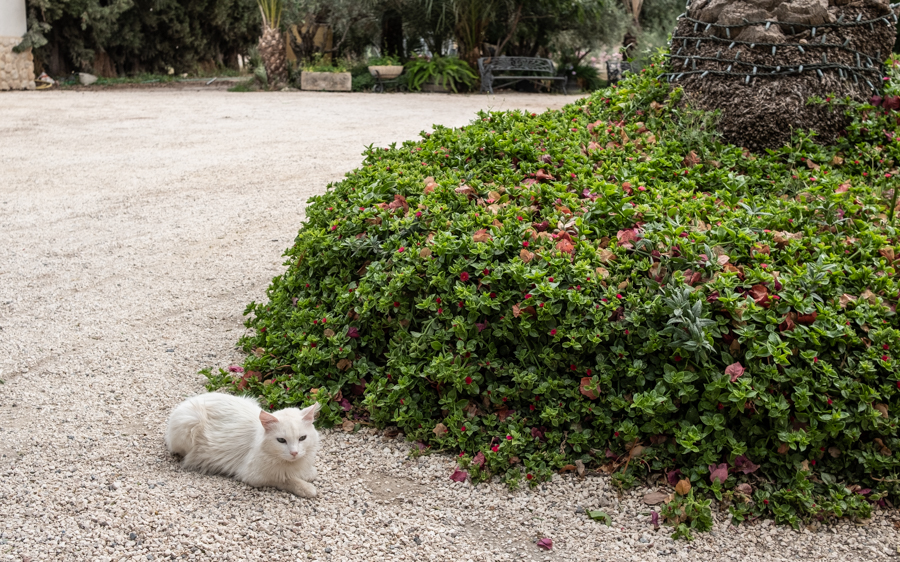
24_6
I made some informal portraits of my friends, starting with Eliot:
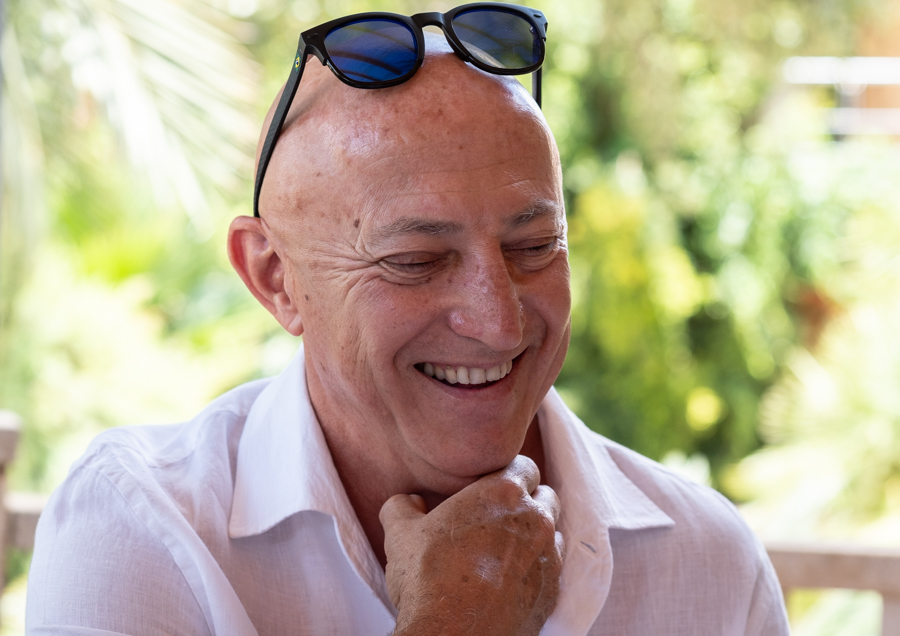
24_7
Eliot’s wife Assumpta:
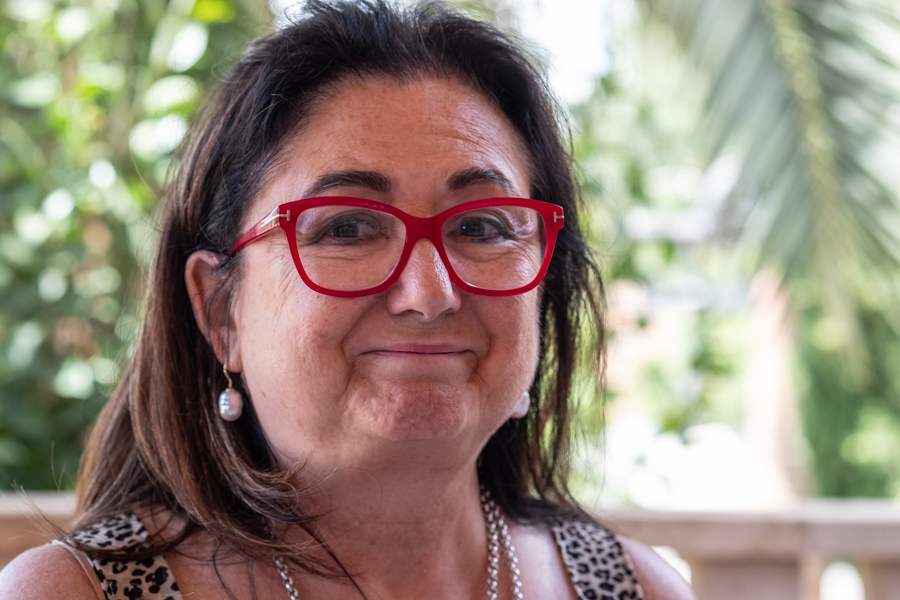
24_8
Eliot’s son Lucas:
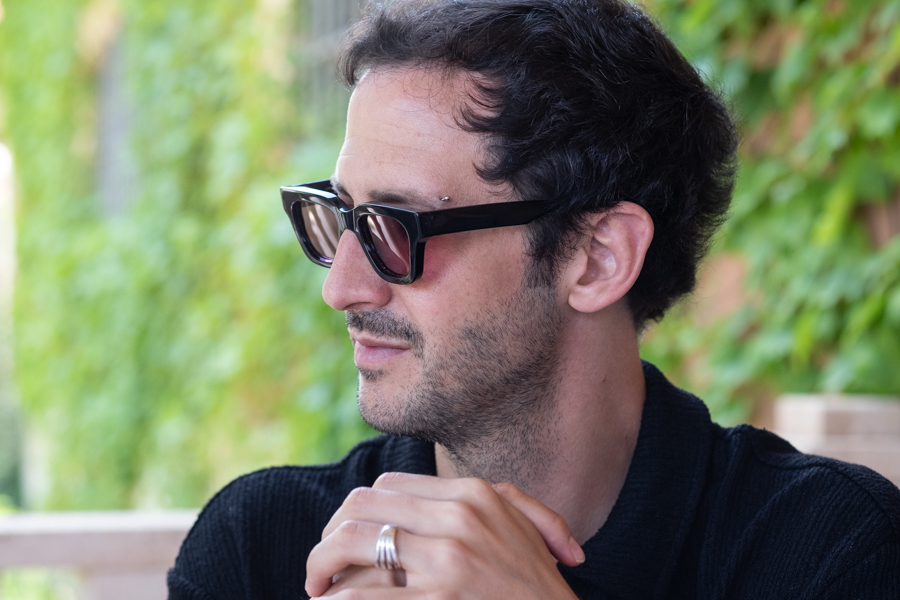
24_9
Eliot, Assumpta and my wife wanted a rice:
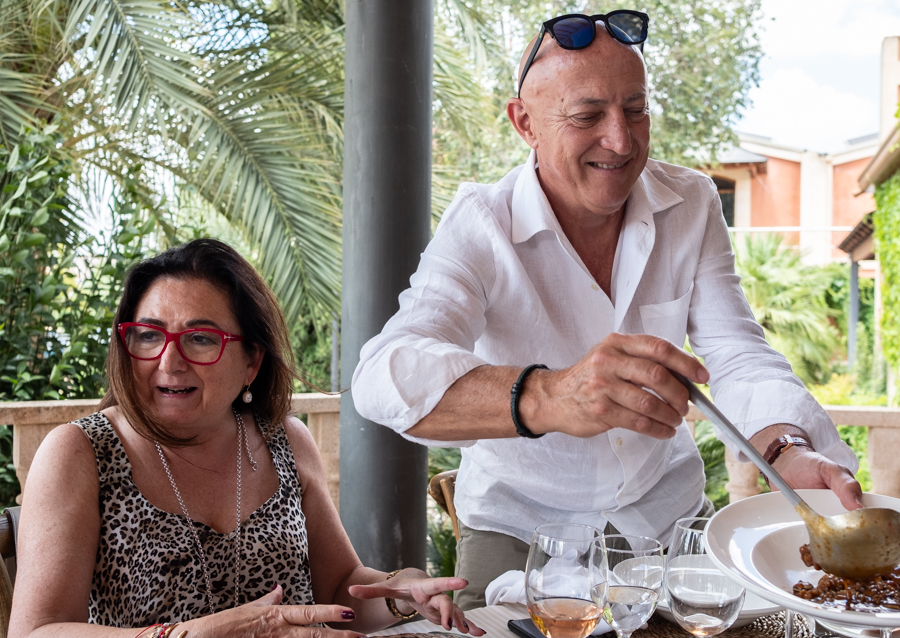
24_10
…while I went for the fish:
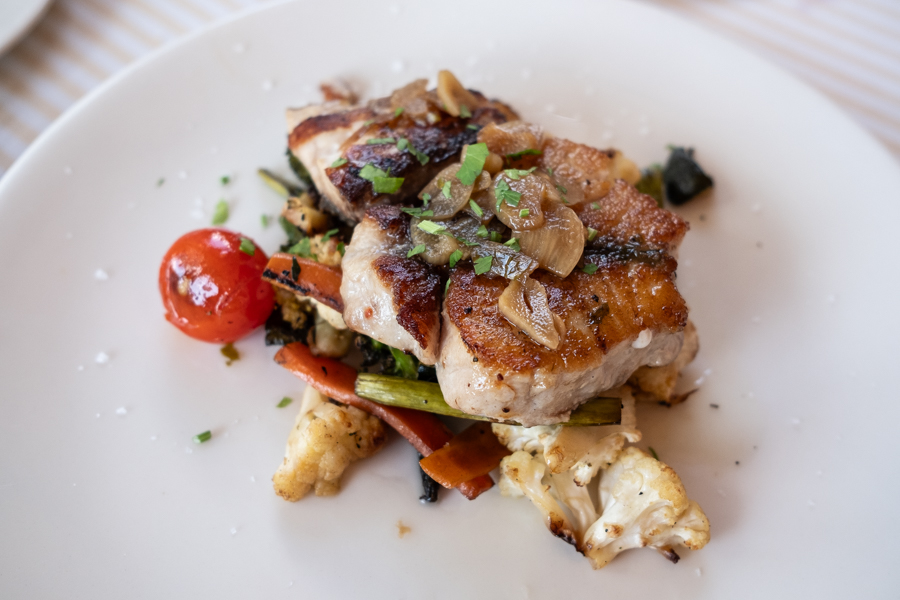
24_11
That day was also election day all over the EU, the election to the European Parliament. I voted in the Polish election, to get rid of some of the deputies from the former ruling party (which we voted out of national office last October). The embassy in Madrid had organised a polling location in Alicante, staffed by a mix of people sent from there, and local volunteers. One of those was my colleague Michał. He is younger than I but still, he lived in Poland during the bad old days, and so we both take our democratic duties and privileges very seriously:
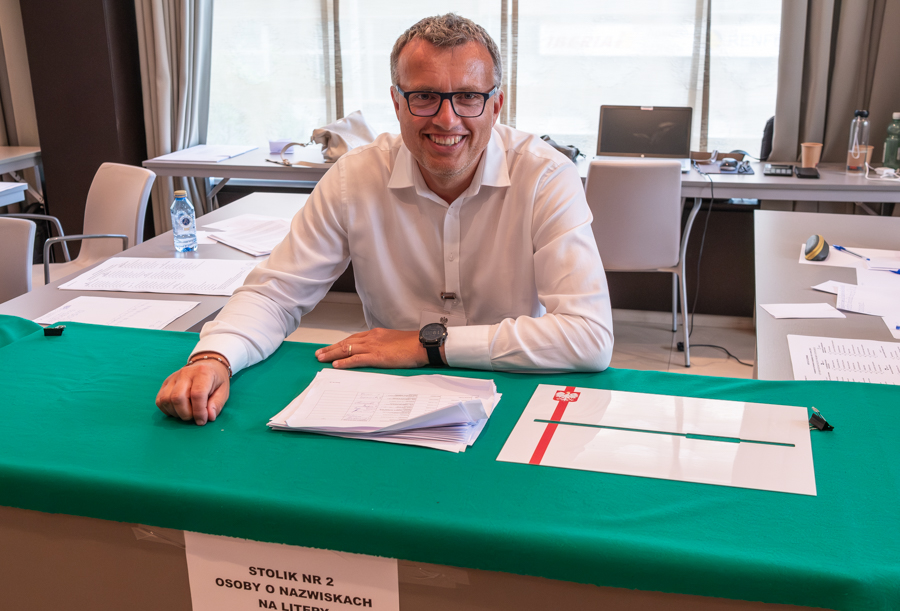
On Wednesday I flew to Warsaw and spent the rest of the week in Poland.
24_12
Per my usual operating procedure, I took a taxi to my hotel to check in, hang my suit in the closet etc., and then I ventured out to to enjoy the city. My hotel was on Chmielna Street, a promising name for a beer lover like me, since “chmiel” means “hops” in Polish. As is the case everywhere in this vibrant city, there is a mix of old and new:
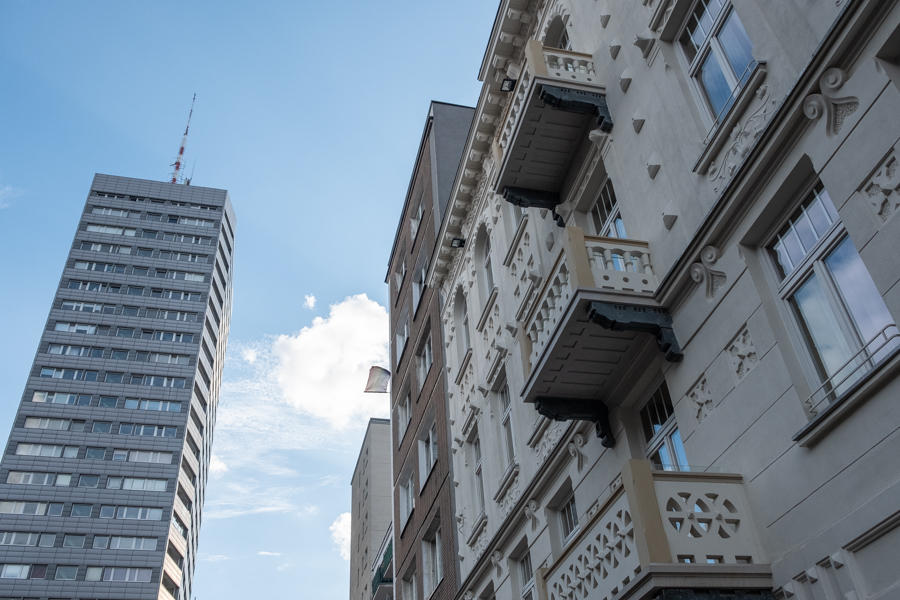
24_13
Conveniently, there was a craft beer bar next to my hotel, so I sat down to replenish my body fluids. One of the waitresses took a smoke break outside:

24_14
I walked towards the Old Town, along the Krakowskie Przedmieście street, the main thoroughfare leading to Castle Square. I stopped at the Church of the Holy Cross:
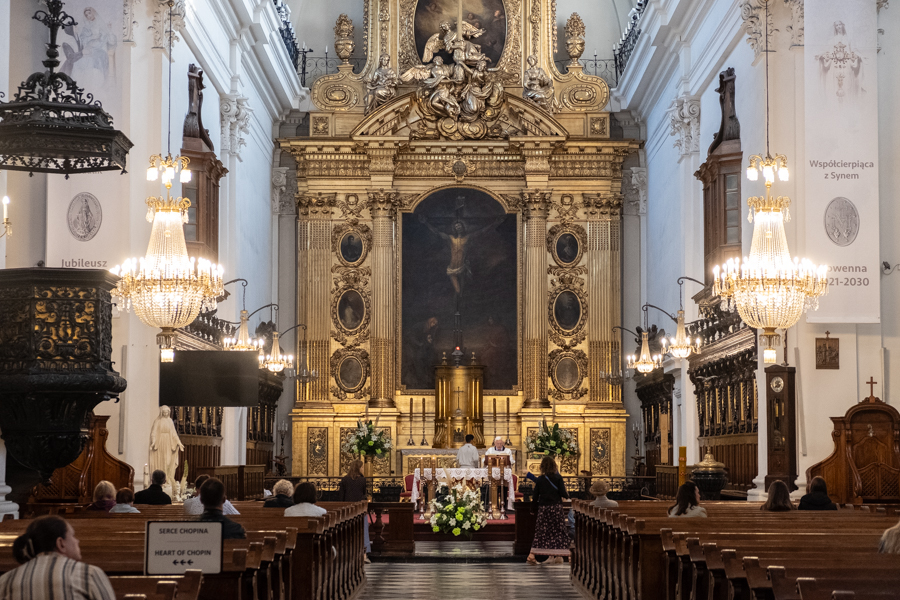
24_15
My reason for entering the church was to see the Chopin memorial. After the great composer died in Paris in 1849, he was buried at the Père Lachaise cemetery (same place where Jim Morrison is buried), but, following Chopin’s wish, his heart was taken to Warsaw and entombed in this church:
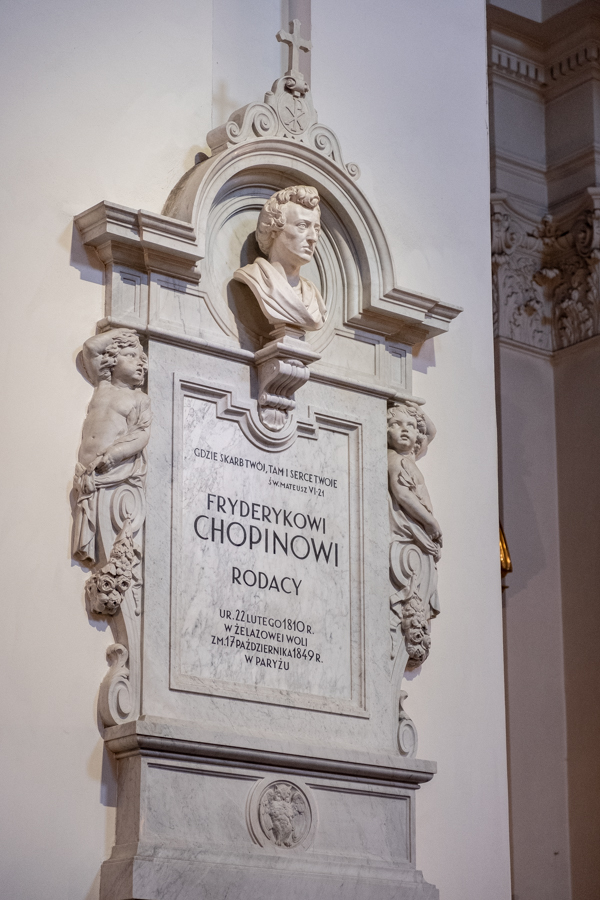
24_16
I kept walking along Krakowskie Przedmieście, and spotted this man walking his Samoyed. I always notice those dogs, since my son in New Jersey has one, whom we refer to as our grandpet:
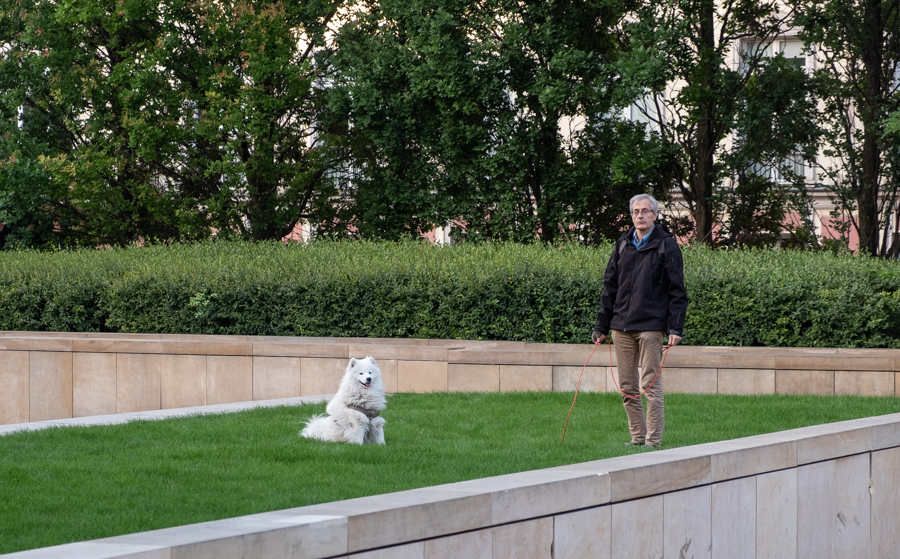
24_17
Just before arriving at Castle Square, I went inside the St. Anna church, paid 10 zł to climb the tower, and enjoyed the view of the square from the top:
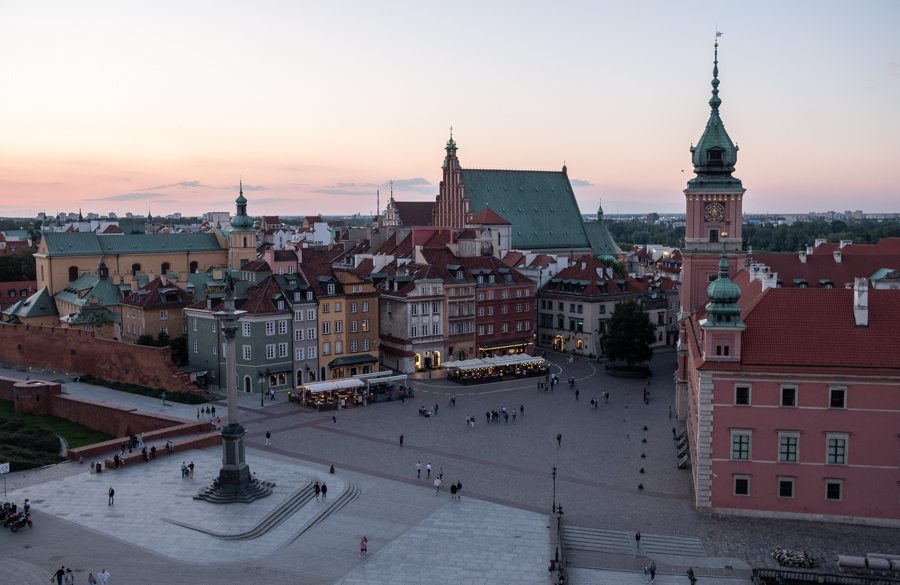
24_18
There were a few others who were doing the same:
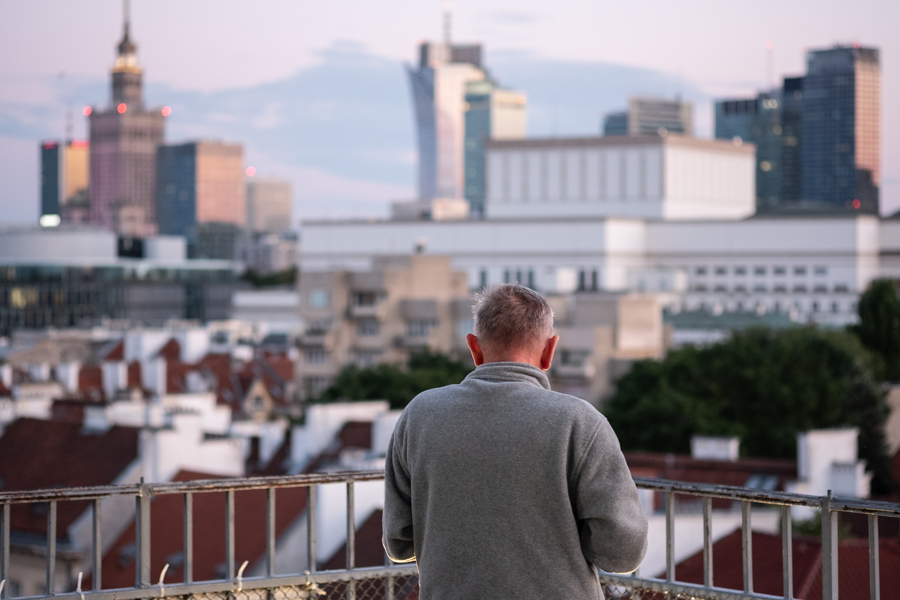
24_19
View of Krakowskie Przedmieście from the church tower, full of bars and restaurants:
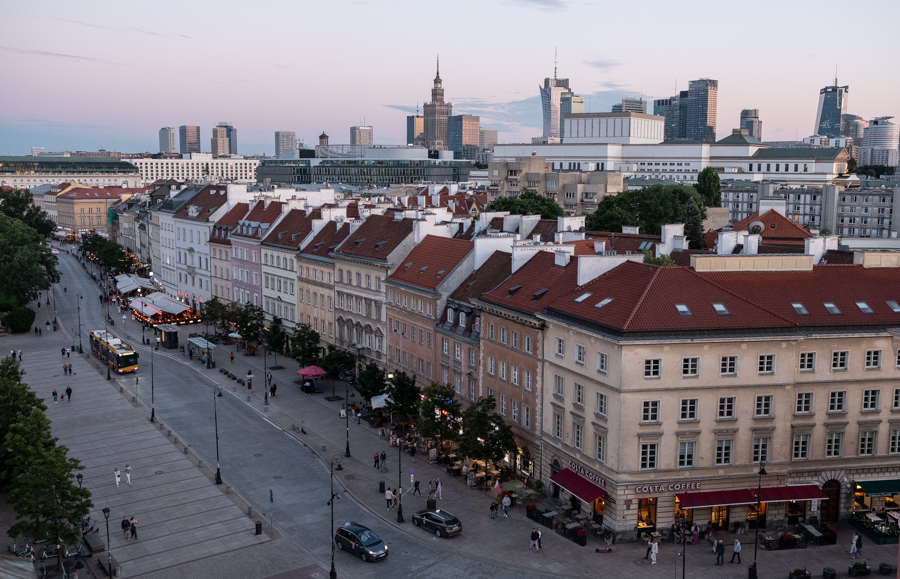
24_20
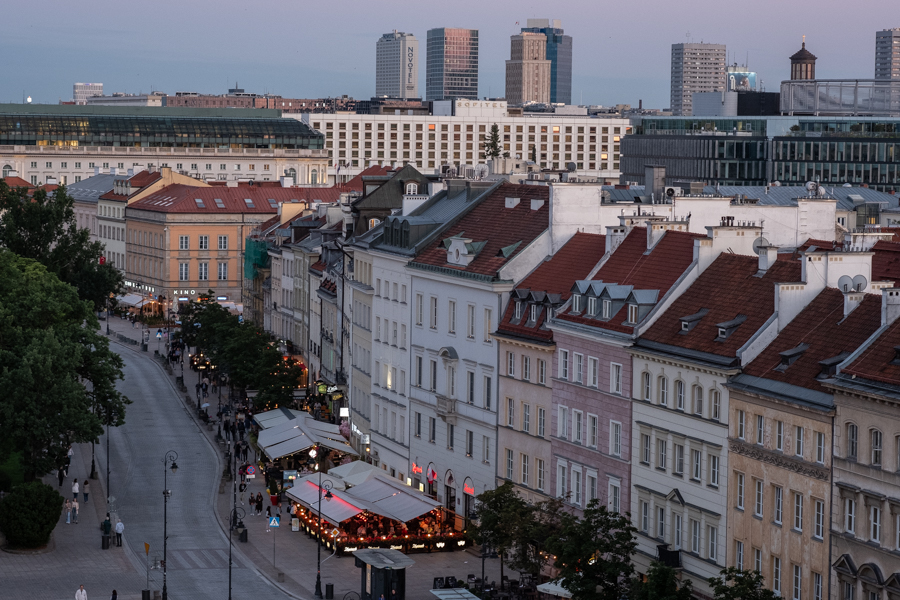
24_21
I descended the tower and walked to the Old Town Square, where there is a statue of the mermaid, the symbol of Warsaw:
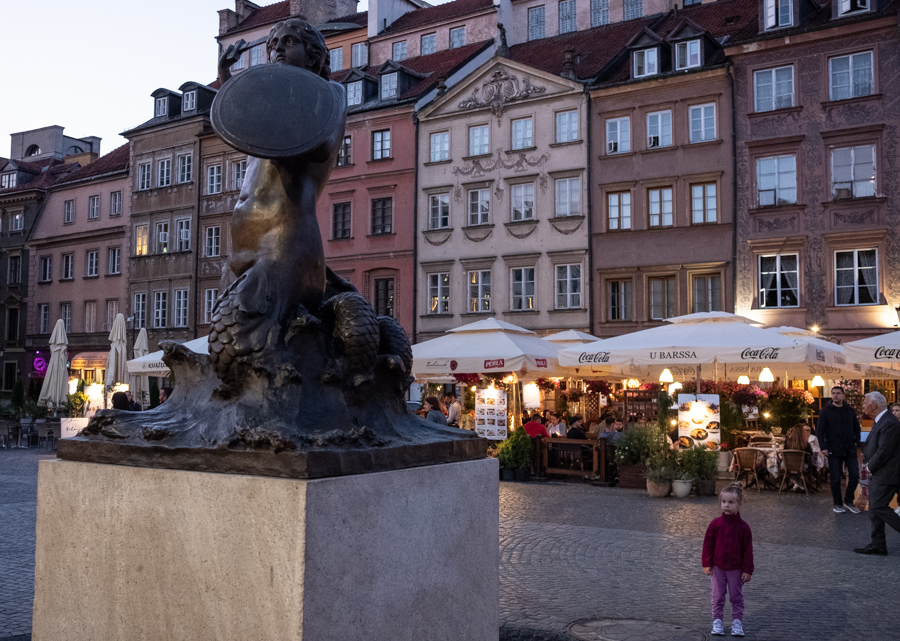
24_22
On Thursday morning I went for an early walk in search of coffee. That need met, I explored the area around my hotel. I was pleased to find a street named after Stefan Wiechecki, simply known as “Wiech”. He worked for a Warsaw newspaper in the 1930s, writing some wonderful stories, mainly based on his attendance at the local courthouse, where most of the cases involved someone getting drunk, doing something stupid, and getting punished with a week in jail. As a child in the 1960s and early 1970s, I loved reading his stuff, and I wrote to him when I was 9 or 10 years old–and he replied! Sadly, I lost his letter during one of my many international moves, so it was great to see him commemorated in his city:
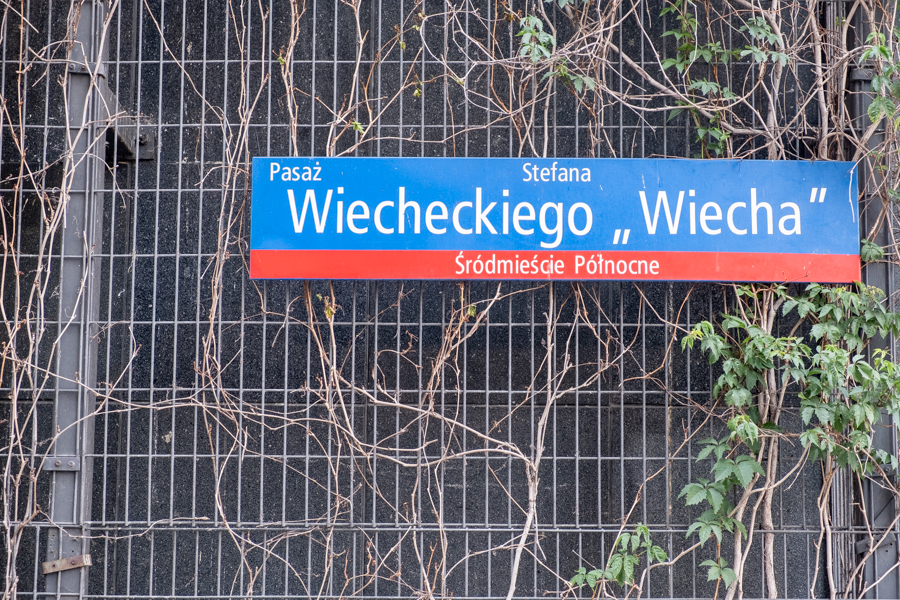
24_23
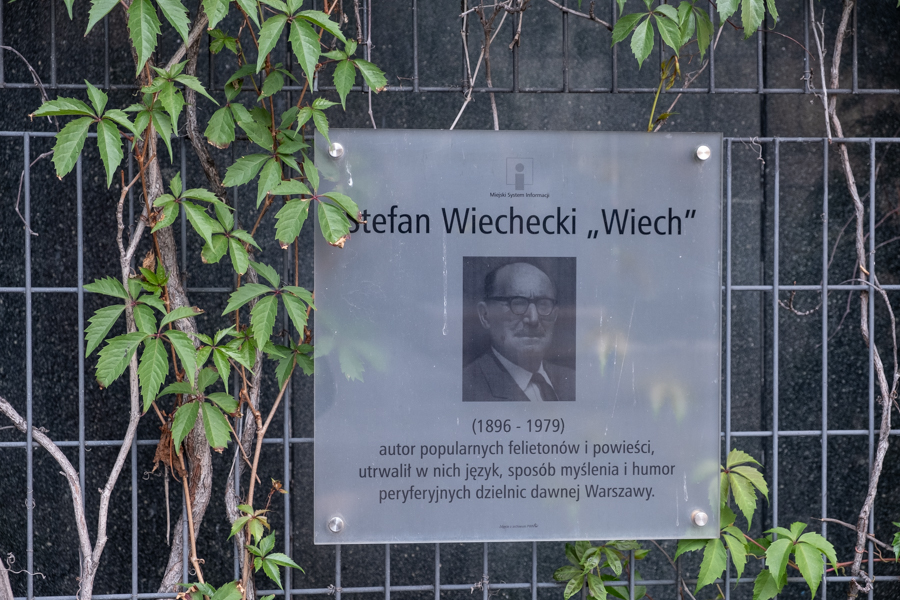
24_24
There are some interesting art works in the Wiech Passage, including this sculpture “Self-Acceptance” by Anna Szalast from 2009:
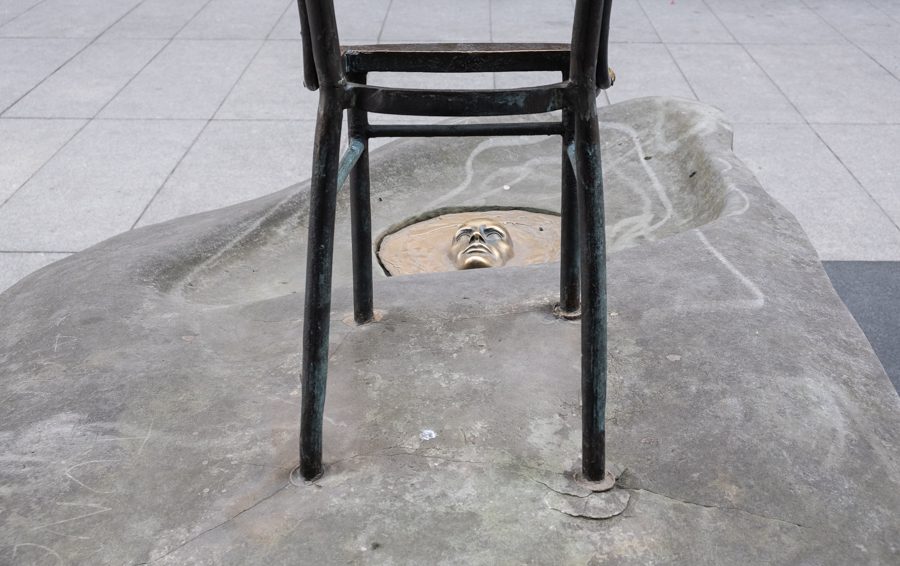
24_25
I then went back to my hotel, changed into my work clothes and walked to the Warsaw Stock Exchange where the innovation conference was being held. On the way, I passed this interesting monument on Bracka Street. It turned out to be the Memorial to Free Speech, placed outside the building that housed the Communist censorship office until 1989. The broken black stripe symbolises the lines used by the censors to black out text (and the fact that it is broken symbolises the end of censorship):
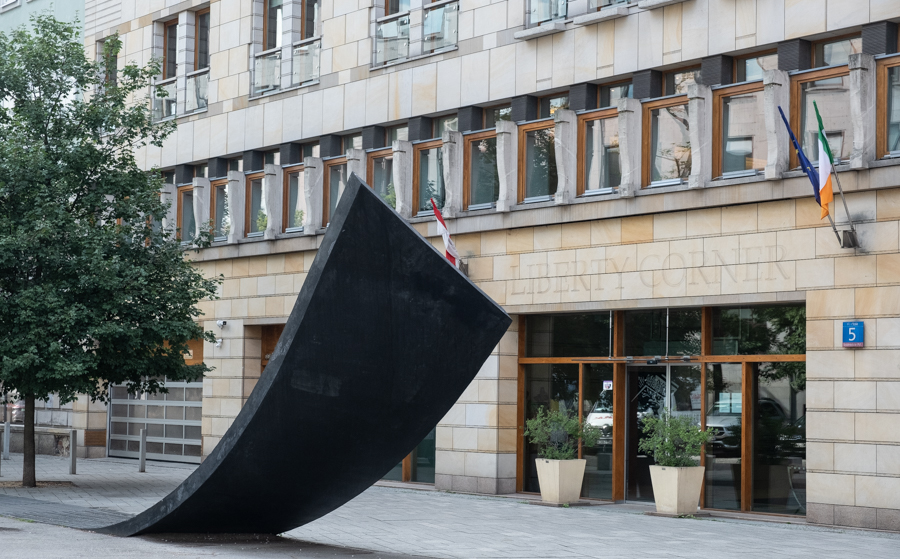
24_26
I reached the stock exchange, not coincidentally based in the building which once housed the Central Committee of the Communist party. The president of the Patent Office of the Republic of Poland, Edyta, opens the conference:
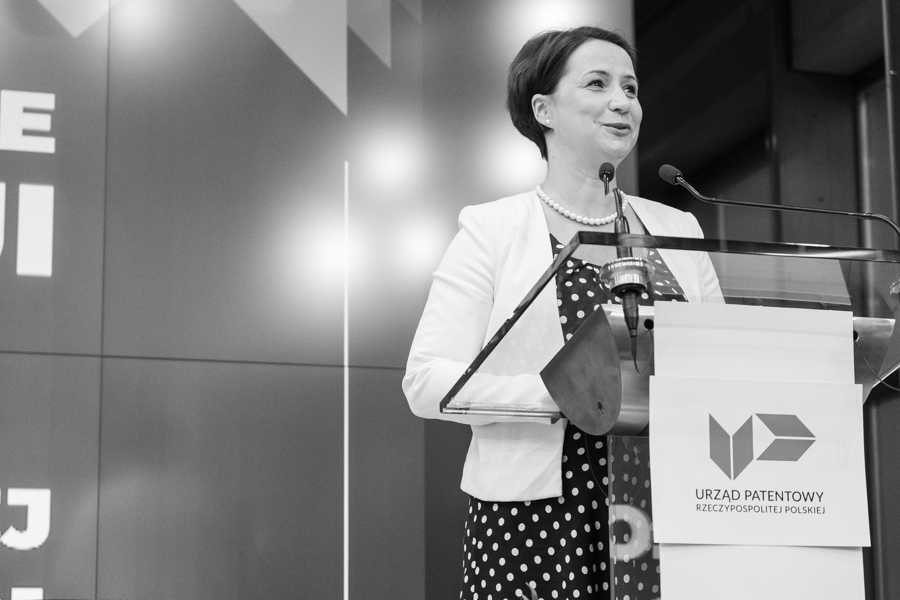
24_27
I made my presentation in late morning but stayed around for the remainder of the day, as the conference was quite interesting. There were panel discussions involving people from the finance sector, academia, government, and, not least, some entrepreneurs:
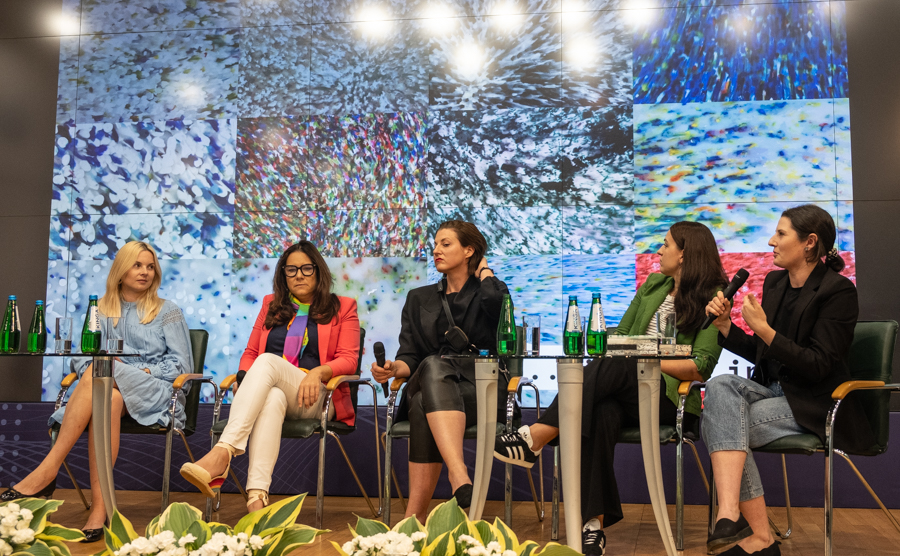
24_28

On Thursday afternoon I made my way to Warsaw’s Central Station and took the train to Wrocław, arriving at my sister’s apartment around 9 p.m. I was going to stay until Saturday, so just a quick visit.
24_29
On Friday morning, as usual when visiting my sister, I took a brief walk in the neighbourhood. This is the building in which she lives:
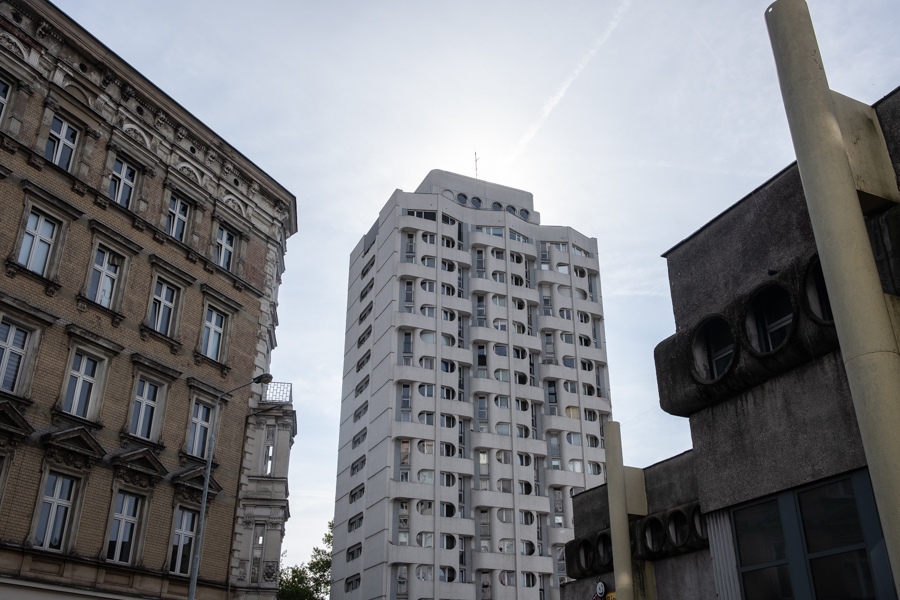
24_30
Later in the day, I went to the central square Rynek with my sister and brother-in-law. There was an outdoor photo exhibition, celebrating the 20th anniversary of Poland’s accession to the European Union, a pivotal event in the country’s emergence from decades of Communist mis-rule:
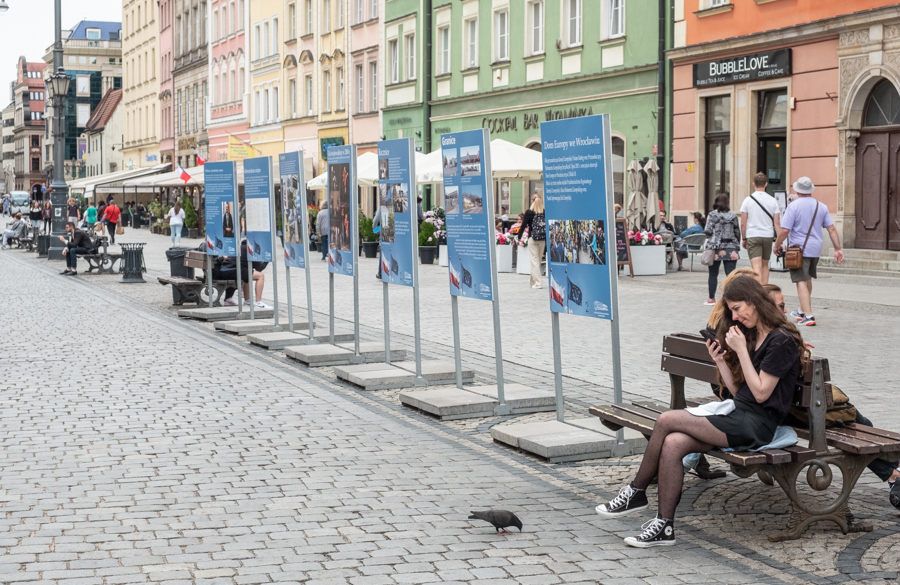
24_31
The weather was warm, so if you have thick fur, you need a break:
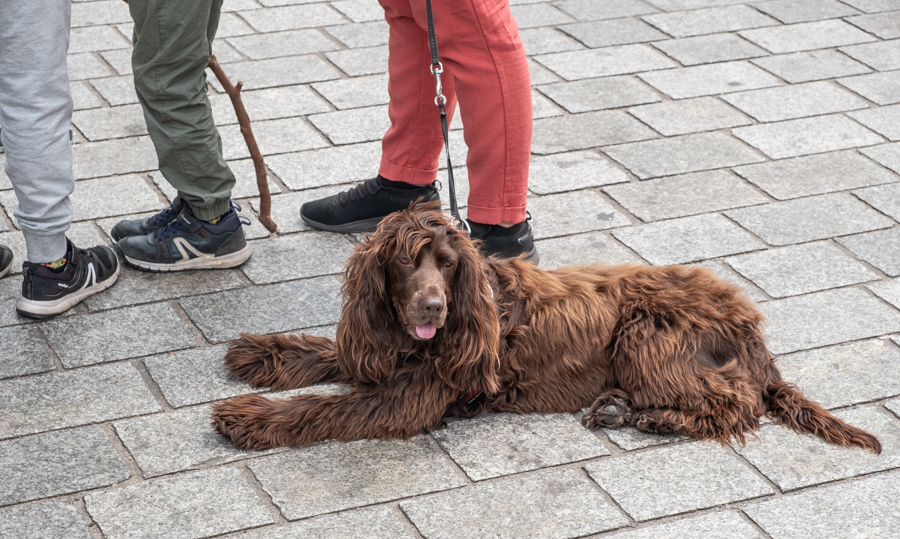
24_32
We sat down for a beer at one of my favourite places, Pijalnia Wódki i Piwa, literally “vodka and beer dispensary”, the kind of generic name a place would carry in Communist times. And indeed, this chain of bars has a 1970s feel to them, with the walls decorated with newspapers from those times–which are now far enough in the past that once can make fun of it. My brother-in-law laughs about something. He will be 87 in January but does not look his age:
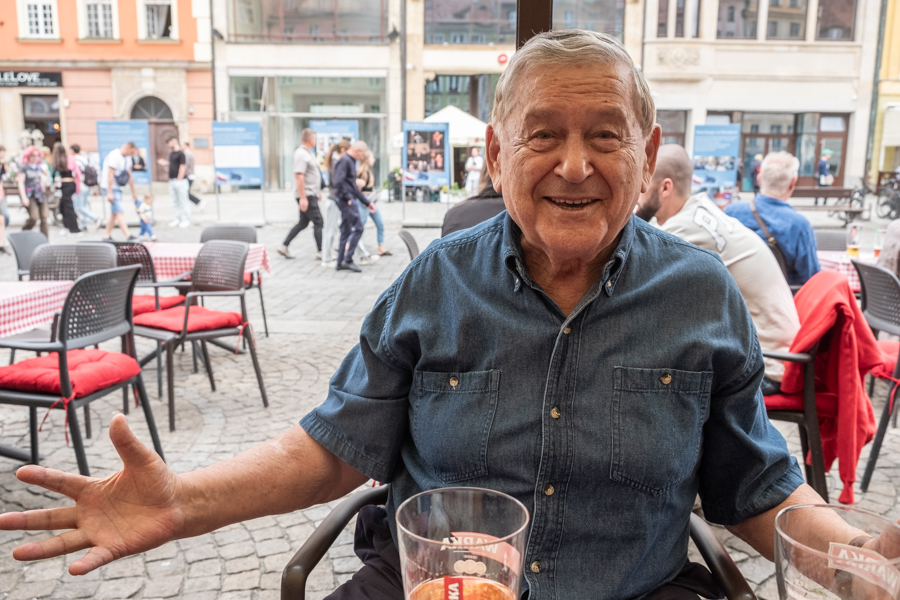
24_33
One of the reasons I like the Pijalnia is that they serve a delicious tartar:
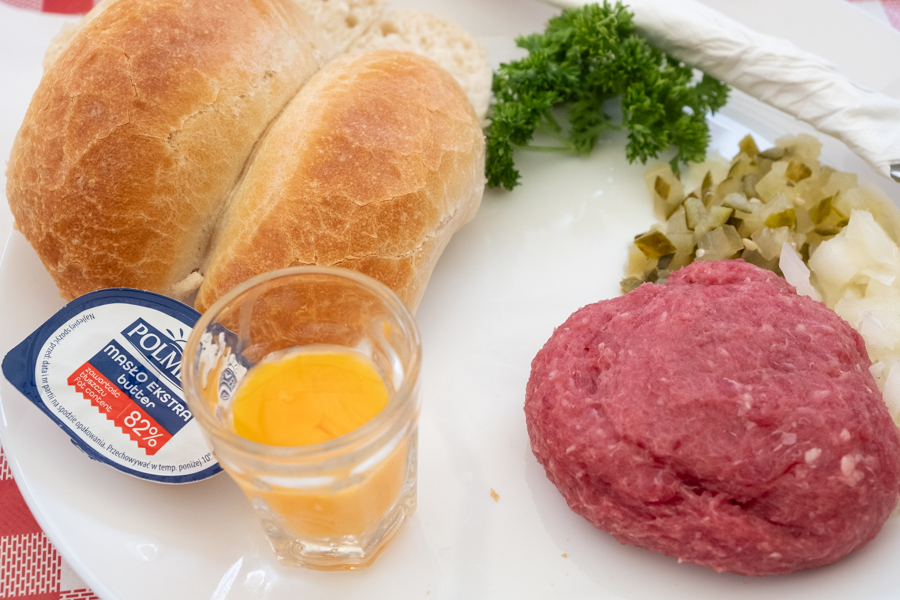
24_34
In the evening, my sister’s neighbour, who is called Irena, same as my sister, came for a chat and a drink:
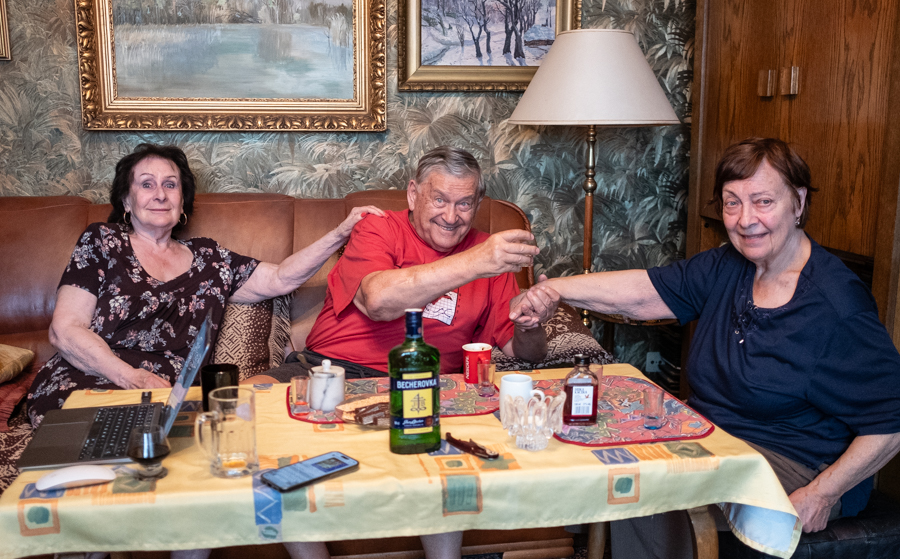
24_35
I woke up Saturday morning to a nice sunrise over Plac Grunwaldzki. The tall buildings belong to the Technical University and are known locally as “the pencils”:
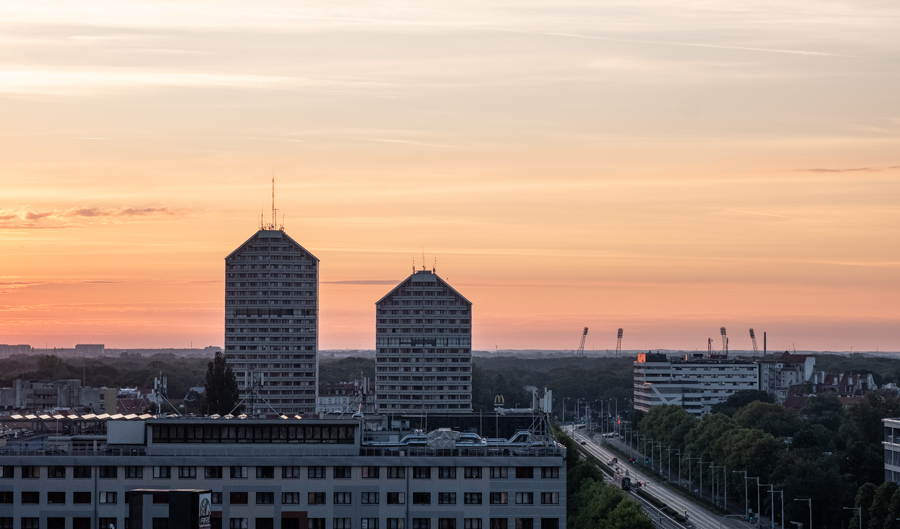
24_36
One of the many bridges over the Odra River, Most Grunwaldzki, opened by the Germans in the then German city of Breslau in the early 20th century. Back then, it was called Kaiserbrücke (Emperor Bridge). The name was changed when Breslau became Polish Wrocław in 1945 and refers to the Battle of Grunwald in 1410, when a combined Polish-Lithuanian army inflicted a crushing defeat on the Teutonic Knights:
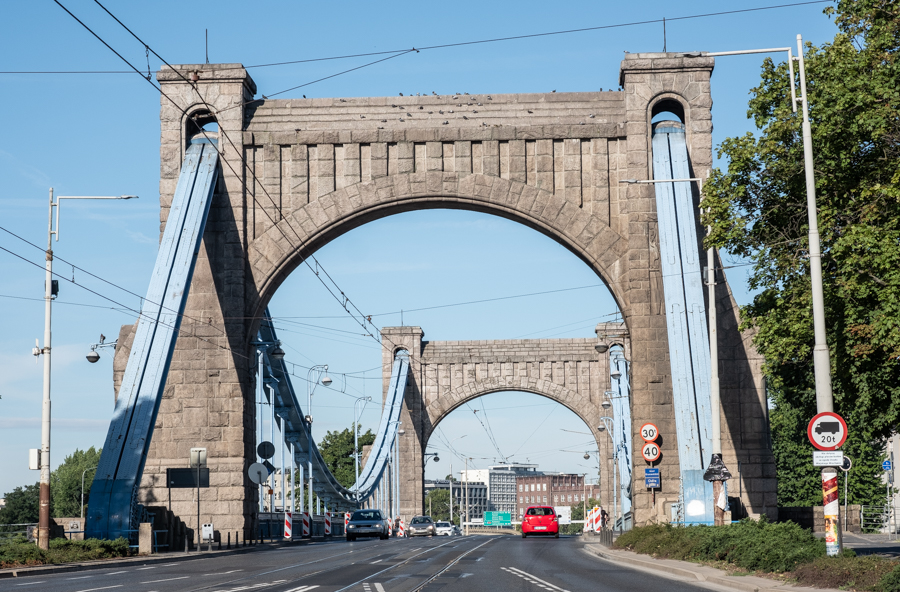
24_37
A colourful tram, celebrating the 75th anniversary of India’s independence (or, strictly speaking, the completion of independent India’s first constitution in 1949):
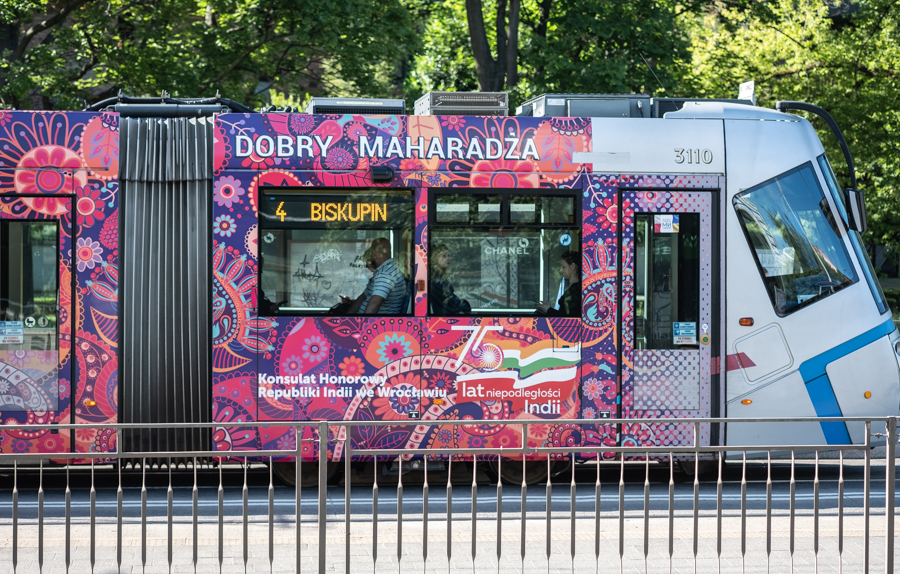
24_38
I had booked a taxi to take me to Wrocław airport at noon, so while waiting in the apartment, I entertained my sister with a demonstration of the impact of shutter speed when taking pictures. She has a toy wind vane on her balcony, and I photographed it at 1/60 second:
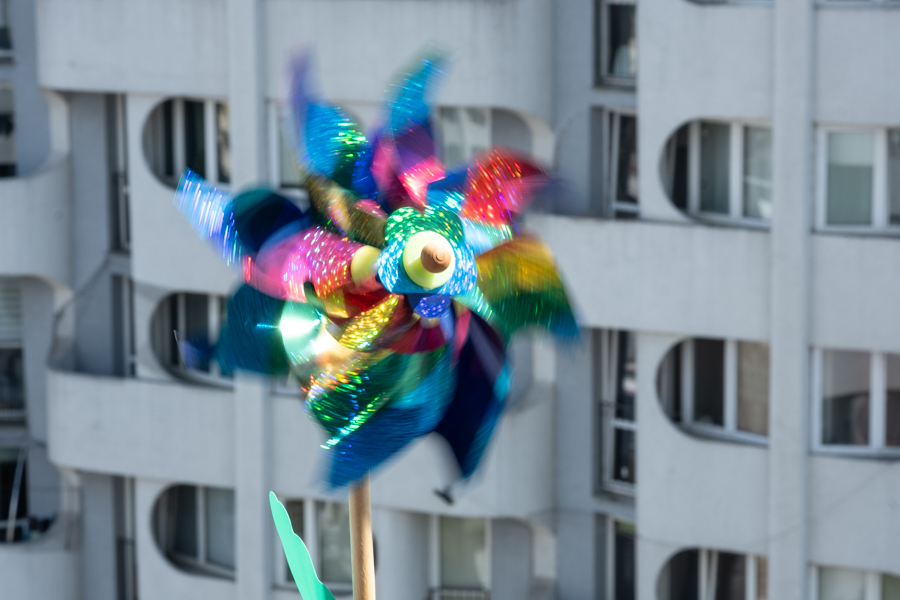
24_39
And again, at 1/1000 second:
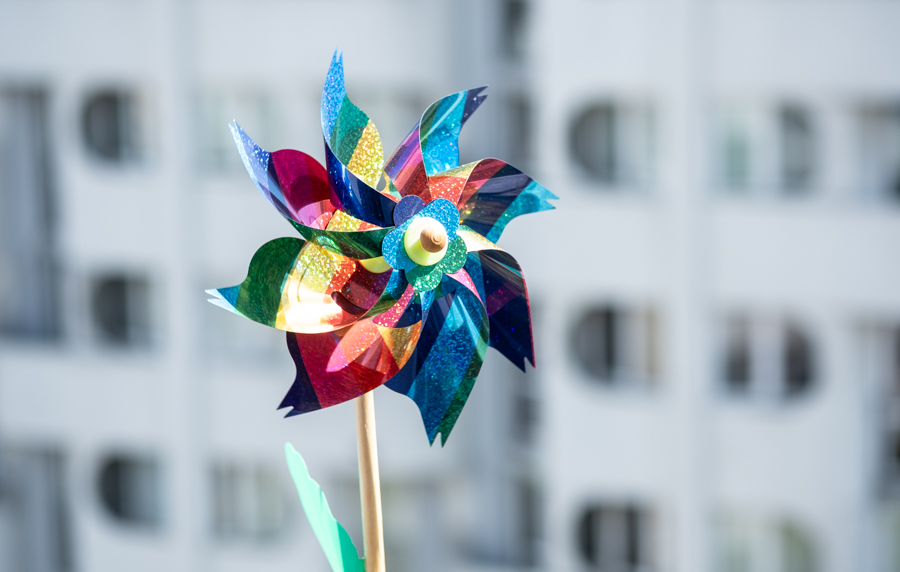
24_40
A quick portrait of my sister before leaving. She is 15 years older than me, but I think that she is keeping well:
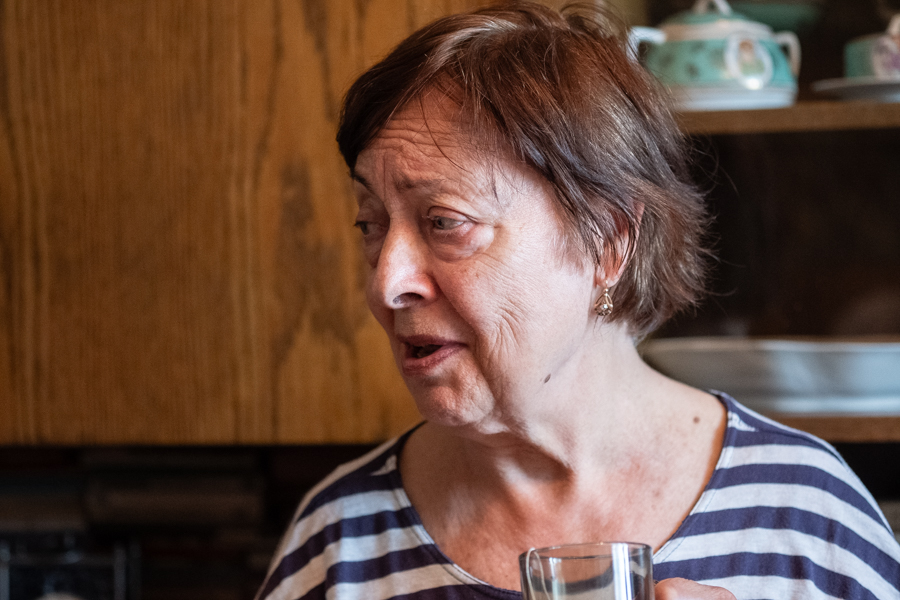
24_41
And then I flew home to Alicante. While Wrocław has direct flights to Alicante, they are not daily, and I wanted to come home on Saturday to have a normal Sunday before returning to work. So I flew home via Amsterdam. While changing planes at Schiphol airport, I came across many Scottish football fans. The “Tartan Army” was on the move around Europe, trying to get to Germany for Scotland’s games in the European Football Championship which had just started. These two guys were happy to pose for me and were generally in a very good mood, especially considering that Scotland had lost 1-5 to Germany the day before. But as they said to me, “we always start slowly in tournaments” (sadly for them, Scotland’s slow start continued, and they ended up finishing last in the group and therefore missing the knock-out stage of the championship):
